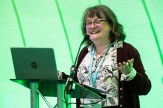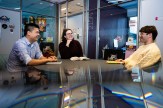No ‘summer melt,’ only days filled with reading and fun for kids in dynamic Northeastern program
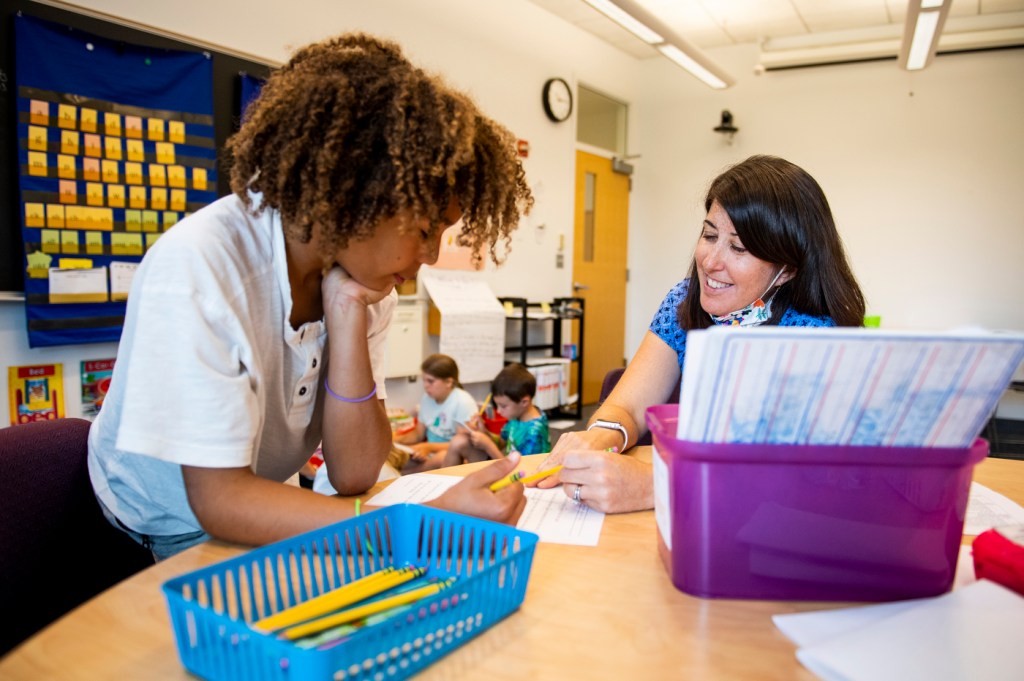
At Northeastern’s Speech-Language and Hearing Center, 32 children wrote down their hopes and dreams, and posted them on the classroom walls.
“To diskover a new Dinosar spesis,” wrote Leo, who drew a picture of a dinosaur skeleton in pencil. Cam wrote that they wanted “to win capture the flag.” Emma wrote “to be a better reader.” She drew a picture of herself surrounded by puppies.
The children, all students entering grades 2-6, are attending a four-week summer reading program on Northeastern’s Boston campus this July. The program, called Word Detectives, helps students who are reading below grade level to maintain their skills over the summer and boost their confidence going into the next school year.
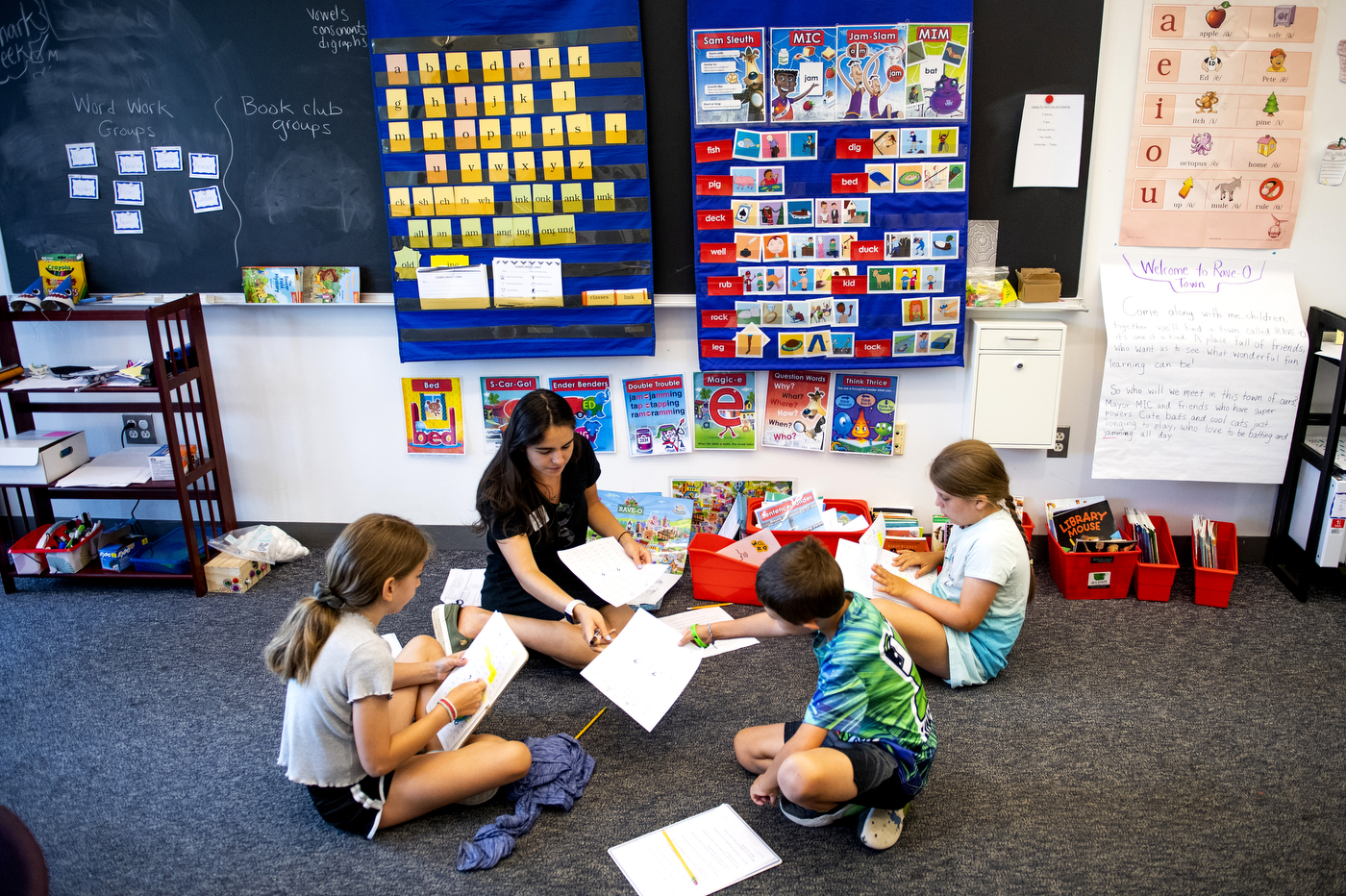
The program is unique in that, rather than earning rewards like gold stars or good grades, students are prompted to find their own motivation to learn—like, for example, the prospect of one day discovering a new dinosaur species.
“That’s what sets our program apart,” says Rebecca Brand, co-director of the program along with Sarah Young-Hong and Elyssa Brand.
Young-Hong started the program in 2018, when a similar program at Tufts University was discontinued. She decided to bring it to Northeastern, and hired licensed classroom teachers and speech-language pathologists (SLPs) to run the sessions. Speech-language pathology graduate students in the Communication Sciences and Disorders Department at Northeastern also work in the program as part of their clinical training. There, they learn more about what reading classroom instruction looks like and how their work as SLPs intersects.
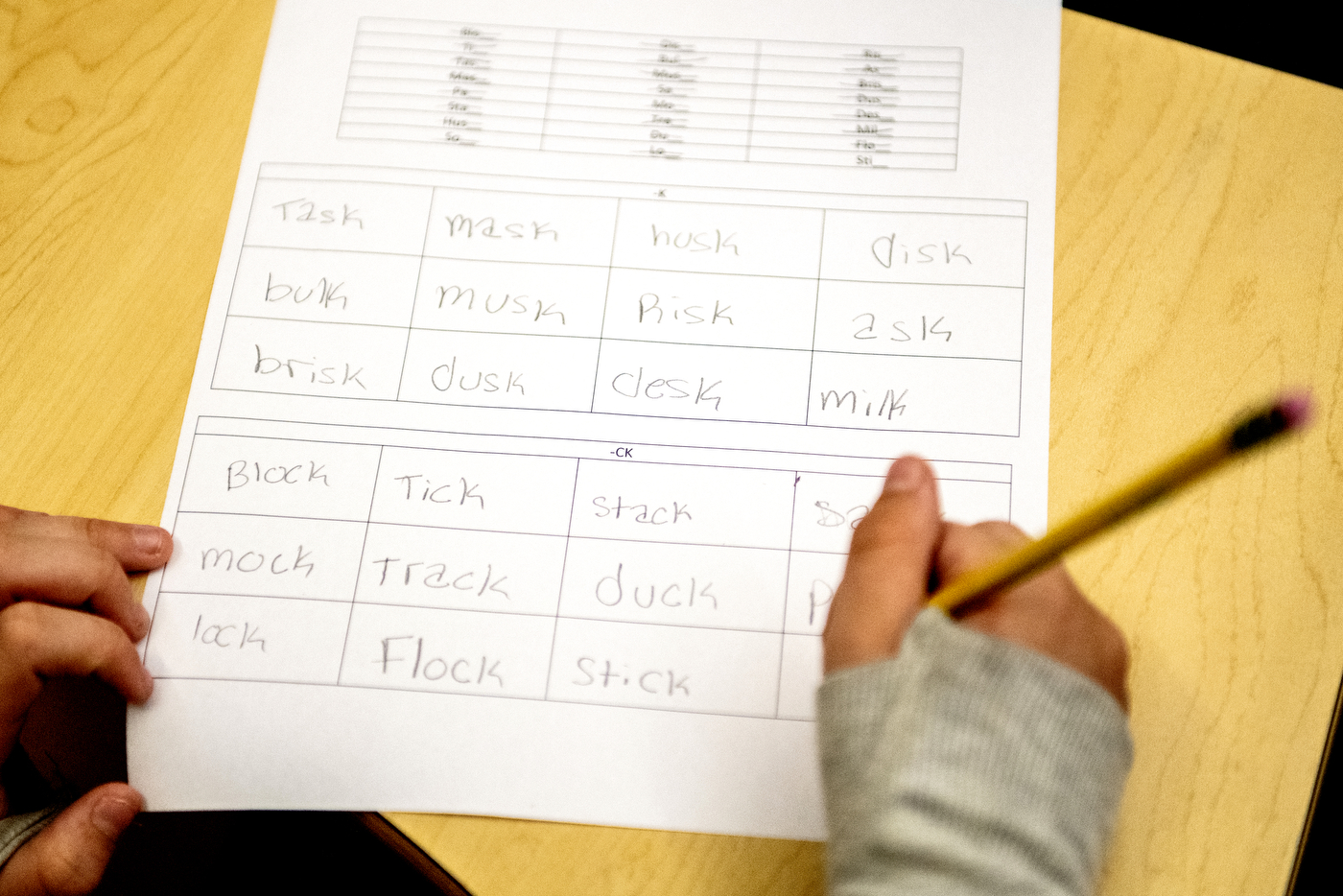
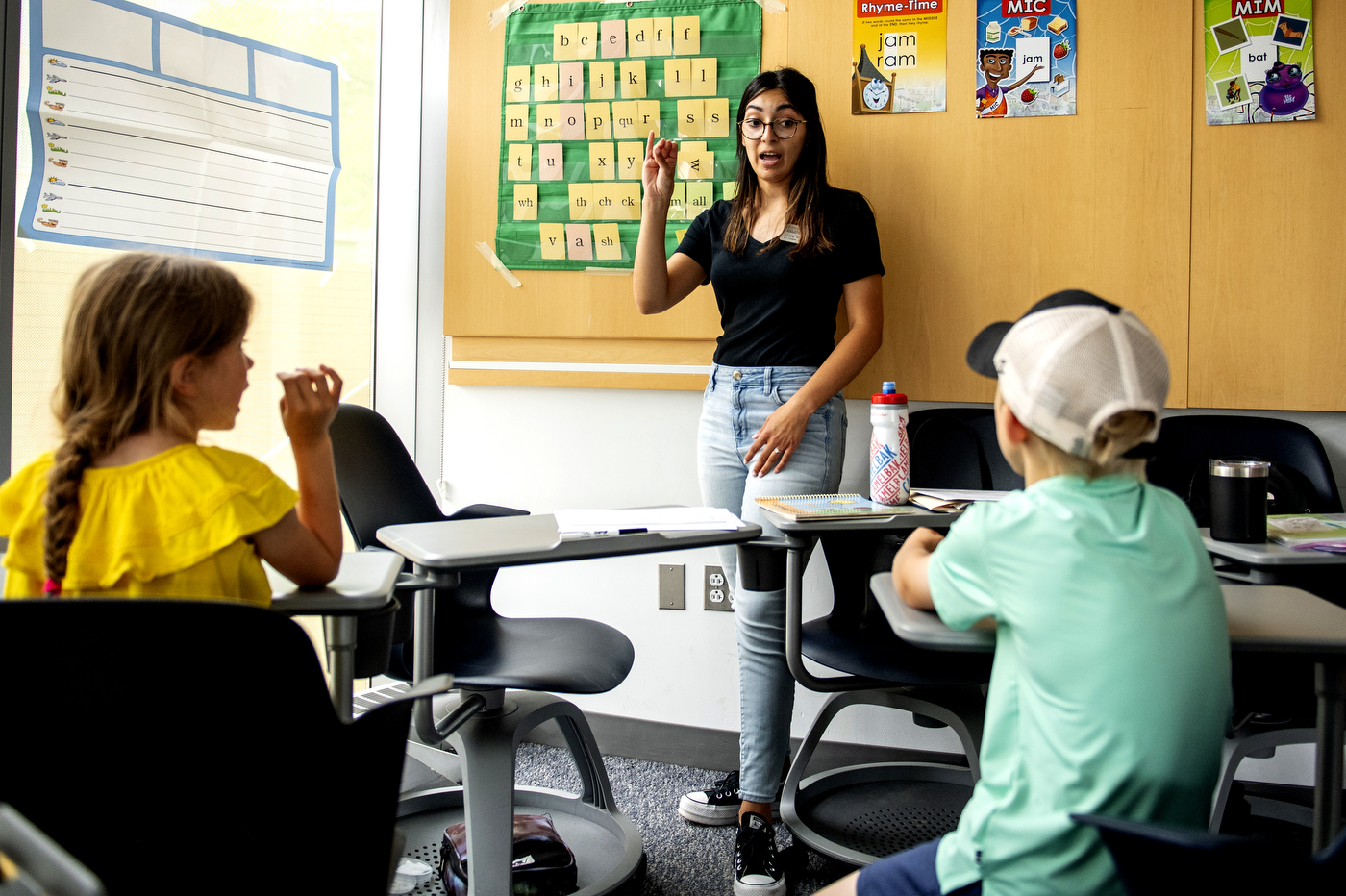
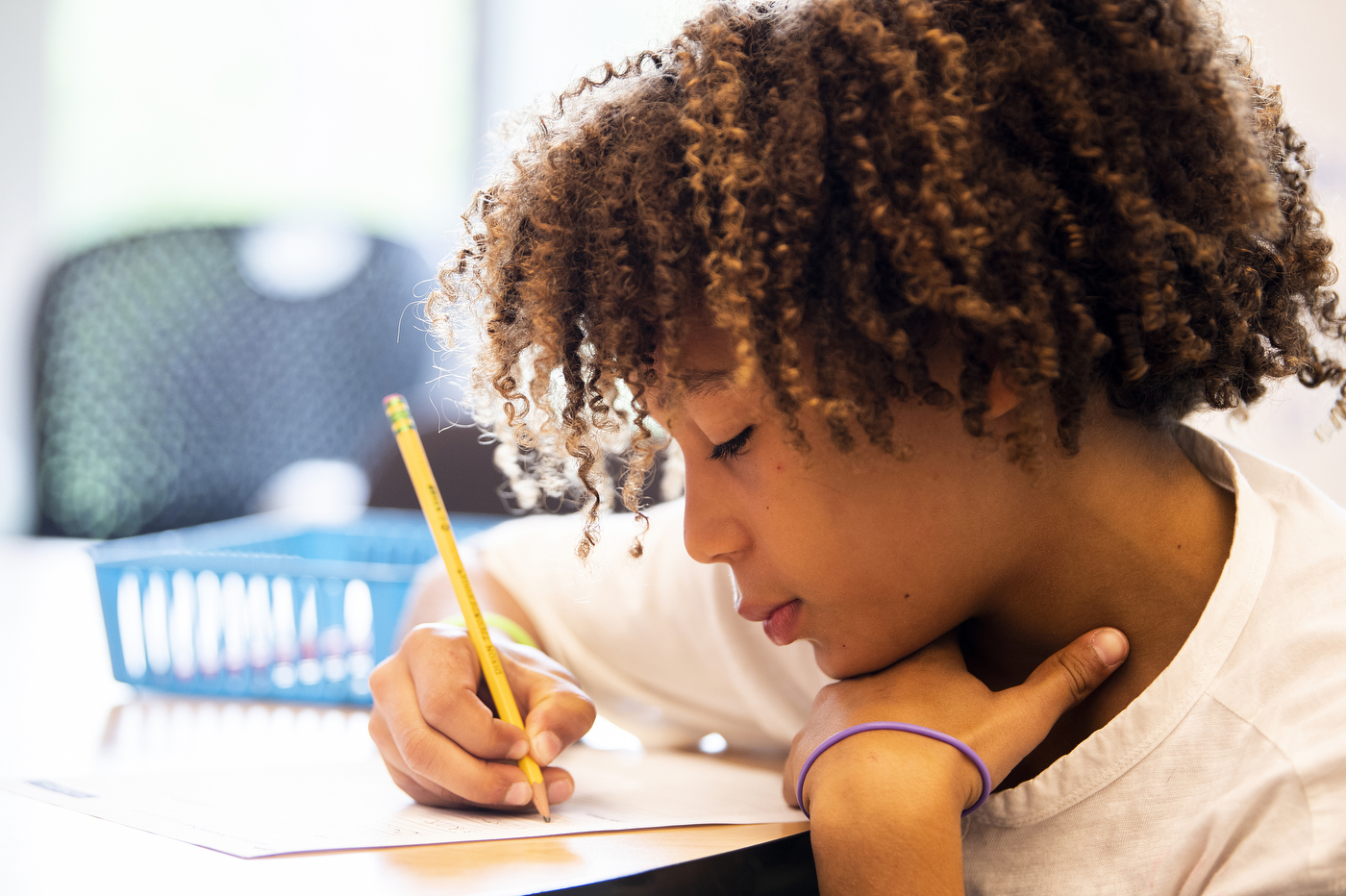
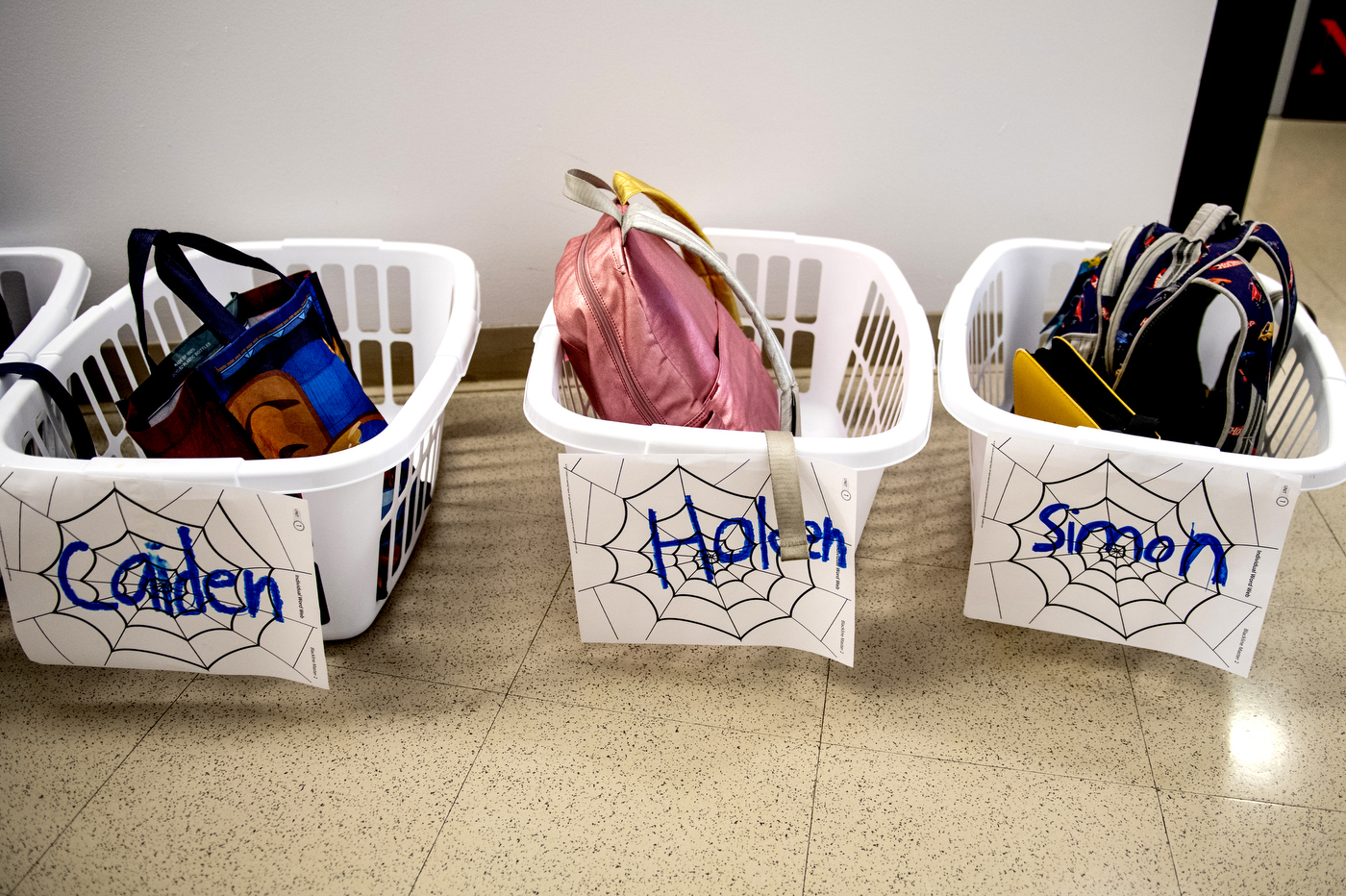
Together, the instructors lead students through structured days filled with learning and fun. Each day, students attend two instructional sessions, where they break up into small groups and receive literacy instruction using a few different teaching techniques, including Orton-Gillingham-based instruction, RAVE-O and decodable text practice. The instructors’ goal is to maintain and build upon students’ skills during the “summer melt,” a time when many students regress.
Between the two instructional blocks, students engage in activities that are based on a weekly theme. This week, the theme is superheroes, and students created superhero shields on Centennial Common as part of an arts and crafts project. Last week’s theme was sharks, and for the final week, the theme will be “furry and not-so-furry friends.” Cooper the campus therapy dog will pay a visit, along with puppies in training from Northeastern campus police.
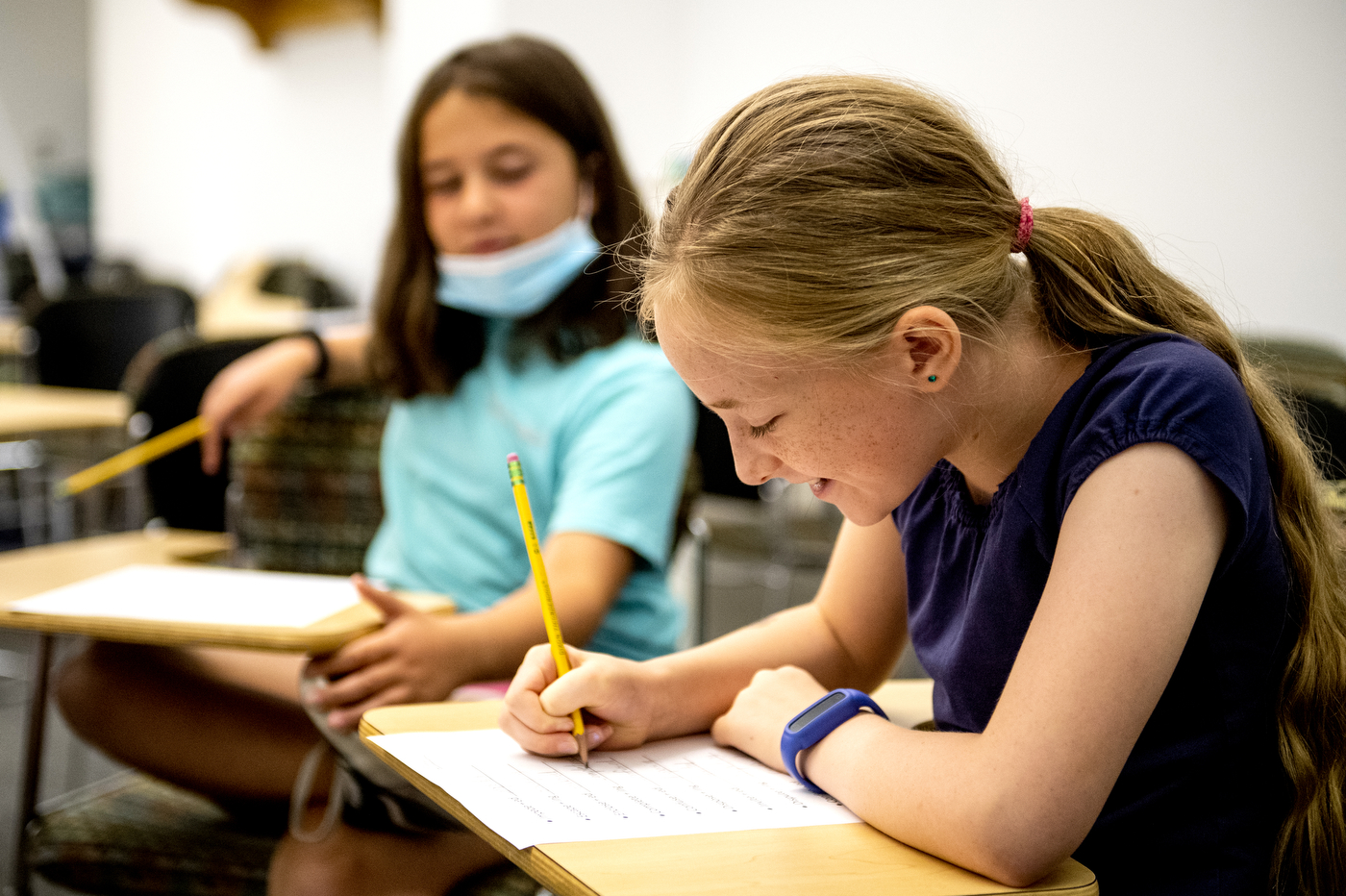
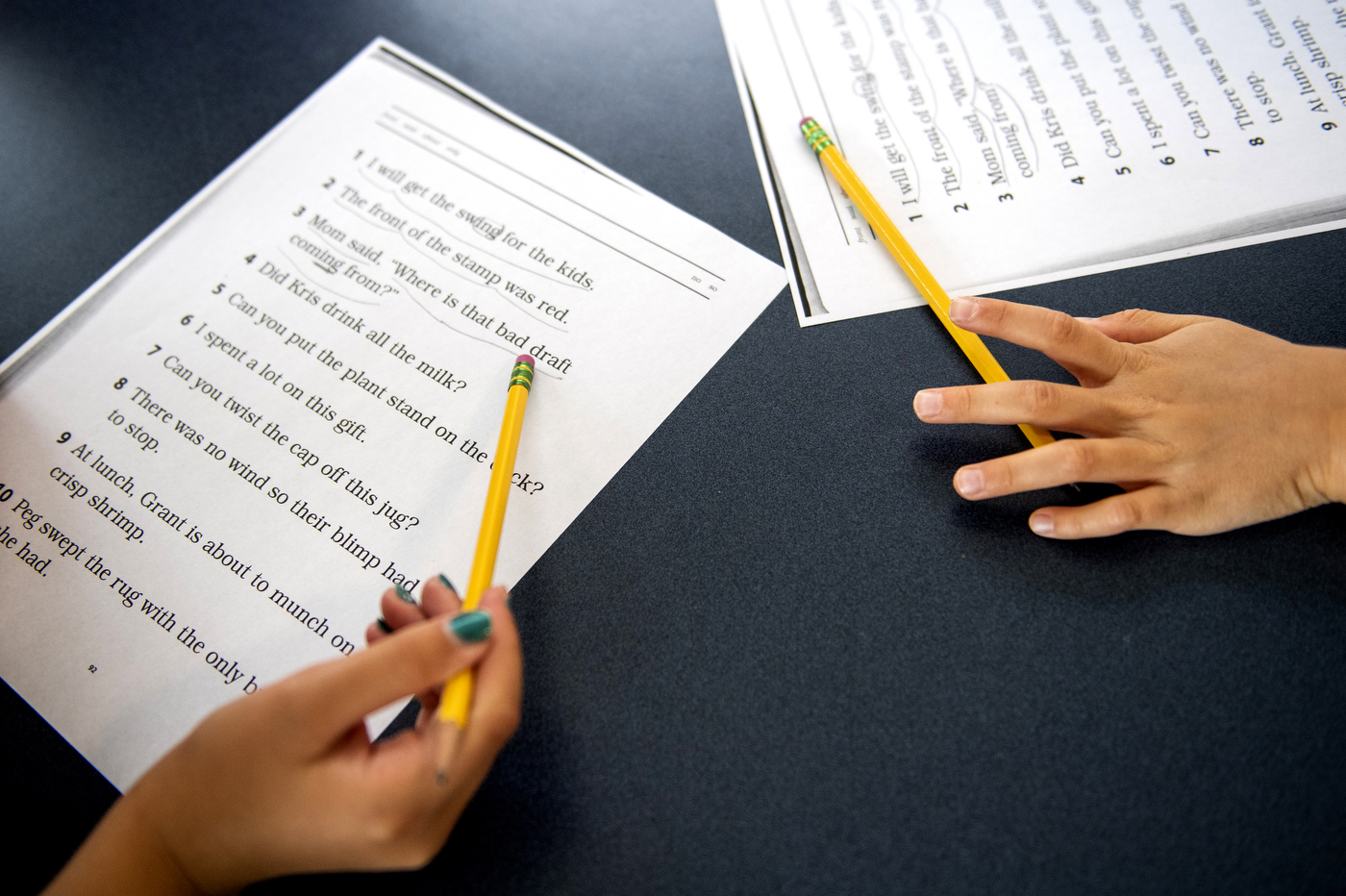
This dynamic structure makes the program engaging for students. Classroom walls feature artwork, samples of their writing, and instructional posters. One sign shows two hands with the letters d and b written over them, demonstrating a strategy for remembering the difference between the mirror-image letters. On a white board, students wrote their favorite sea animal—penguin was the most popular, followed by sharks, otters and seals.
The children come from all over the Greater Boston area, but they all have one thing in common—they’re all working on their reading—and this brings them a powerful sense of belonging. Students are split up not by grade level, but by reading ability, something that sets the program apart from standard classroom instruction and helps the children see themselves as equals.
“It’s very different from a school setting. Oftentimes these kids are one of just a few in the classroom who are struggling to read, so they’re always getting pulled out,” Young-Hong says. “Here, it’s different because it doesn’t matter what grade you’re in.”
But the biggest impact the co-directors have seen is in confidence building. “We’re working on building feelings of autonomy, belonging, competence and meaning,” says Brand. The feedback they get from parents is that their children enter school the next year with renewed optimism when it comes to reading.
“Those are the big successes for us,” Young-Hong says. “By the end of the program, they’re engaged and happy, and loving what they’re doing.”
For media inquiries, please contact media@northeastern.edu.

